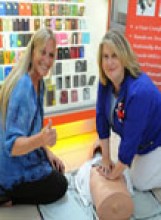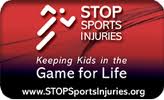Archive for October, 2012
A Cough You Can Die From
Posted by: | CommentsWhooping cough is an extremely contagious and serious illness. The CDC (Center for Disease Control) reports that several states are reporting an increase in the number of cases, including a state wide epidemic in California. Whooping cough also known as “pertussis”, can easily spread when an infected individual coughs or sneezes. The pertussis bacterium is released into the air and can be breathed in by the non-infected person.
Whooping cough is not just a disease for the young. In California there has been a recent surge in teen and adult cases of pertussis. The vaccination series of shots most of us received in our childhood has now long expired. For teens and adults with new infants, it is suggested that they receive the Tdap booster. One person’s infection can easily spread through the rest of the family. In many cases it may take up to six weeks to recover from this illness.
Pertussis is extremely serious for the young. Infant and children with the disease cough violently and rapidly, over and over, until the air is exhausted from their lungs and they’re forced to inhale with a loud “whooping” sound. Pertussis is most severe for babies; more than half of infants less than 1 year of age who get the disease must be hospitalized. About 1 in 5 infants with pertussis get pneumonia (lung infection), and about 1 in 100 will have convulsions. In rare cases (1 in 100), pertussis can be deadly, especially in infants.
Your best protection against whooping cough it to get vaccinated or receive the booster. If you or your child begins to show the signs of the disease, such as a runny nose, congestion, fever or a mild cough which continues to become more severe; stay home, drink plenty of fluids and see your physician.
For more information on pertussis visit the CDC website at www.cdc.gov/features/pertussis/
Does Aspirin Prevent Breast Cancer?
Posted by: | CommentsA recent study of 116,181 women suggest taking aspirin may reduce the risk of breast cancer in women. Women between the ages of 51 and 70 who took the painkiller at least twice a week over a five year period, showed a 40% reduction in breast cancer risks.
Though this study is provocative, U.S. doctors caution that it is too early to begin recommending women to start an aspirin regiment. This preliminary study shows an association but does not prove a cause and effect. Any long term use of aspirin can have side effects such as stomach bleeding and ulcers.
Still this is encouraging information and the basis for new studies, which may determine frequency and dosages recommendations. Please consult your physician before starting any medicine regiment.
Cold and Flu Season Precautions
Posted by: | CommentsThe days are getting shorter and the weather is beginning to chill. The cold and flu season is upon us. With more activities inside and closer physical contact with others, this increases your potential of acquiring a bacterial of viral infection.
The best form of prevention, during these times, is to frequently wash of your hands. Most germs are spread through skin contact. Touching of surfaces such as computers, desks, chairs and hand-shaking can help in the spread of disease.
Once these germs or bacteria get on your skin it can easily transition to other areas of your body. Rubbing your eyes or nose, handling foods such as sandwiches, burgers or burritos, gives these germs an easy opportunity to get inside your body.
Once inside, these germs can multiple and cause you to become ill. Your best defense is the frequent cleansing of your hands. Plain soap and warm water are the simplest and best form of cleansing. Spend time in creating a good lather with the soap. Make sure to rub in between each finger and under your fingernails. It is best to wash for at least 15 to 20 seconds or as long as it takes to sing the childhood song, “Twinkle, twinkle little star”.
This can be a fun way to get children involved in more frequent hand washing. Though if you are by yourself you may want to sing quietly if you’re in public.
Halloween Safety Tips
Posted by: | CommentsWhy was the skeleton afraid to cross the road? It had no guts…
Ghost, goblins and vampires…Halloween will soon be here. For kids, Halloween is an exciting holiday and nothing ends a great time more quickly than a trip to the emergency room. To ensure a happy venture, here are some “tricks” for a safe Halloween.
Motorists
- Watch for children darting out between cars.
- Watch for children walking medians and curbs.
- At twilight and later into the evening, watch for children in dark costumes.
Parents
- Designate an adult or older child to supervise younger children during the outing.
- Plan and discuss the route the trick-or-treaters, plan to follow.
- Instruct children to travel only in familiar areas.
- Teach children to stop only at houses that are well-lit and to never enter a stranger’s home.
- Remind children of safety rules about crossing the street.
- Always have them walk and not run.
- Tell them to only eat candy that you have inspected first.
Costume Design
- Use only fire-retardant materials for costumes.
- Costumes should be loose, so that warmer clothes could be worn underneath.
- Costumes should not be so long that they become a tripping hazard (falls from running, tripping over lawn decorations or costumes are the leading cause of Halloween injuries).
- Costumes should be of light colored or use strips of reflective tape to make children visible at night.
Masks or makeup
- Masks can obstruct a child’s vision. Facial makeup is a better alternative.
- Make sure the Halloween makeup is labeled with “Made with U.S. Approved color Additives, “Laboratory Tested”, Meets Federal Standards for Cosmetics, or “Non-Toxic”. Follow manufacturer’s instruction for application.
Accessories
- Knives and swords should be made of flexible materials. Do not allow children to carry sharp objects.
- Carrying flashlights will help children see better and be seen more clearly.
Remind children before going out the following rules:
- Do not enter any homes or apartments without you being with them.
- Walk, don’t run between houses. (Tripping over unforeseen objects and uneven terrain can end their evening early)
- Walk on the sidewalks and not in the street.
- Always look both ways before crossing streets.
- Cross all streets at the corners.
Miscellaneous:
- Give children a meal before the outing.
- Use the restroom just before leaving the house.
- Inspect all candy before allowing children to eat them.
- When in doubt, throw it out.
Following these simple safety rules and everyone will have a “fang…tastic” time.
Can Men Get Breast Cancer?
Posted by: | CommentsEven though it’s not as common as in women, men can develop breast cancer. Men have the same breast tissue as do women only that the tissue does not expand or develop further during puberty. Though there is a smaller amount of breast tissue, this tissue is still susceptible to cancer.
It is very rare for a man under the age or 35 developing breast cancer, but the chances do increase with age. The symptoms for breast cancer in a man are similar to a woman. Look for a lump on the chest, bleeding of the nipples or abnormalities in the skin above the cancer.
Treatment for breast cancer in men are the same used for women and in some cases men respond better. The major issue for men is awareness that they can develop breast cancer and waiting too long before receiving treatment. This allows the cancer to spread to the lymph nodes and makes treatment and the possibility of surviving, much harder.
If you find any abnormalities or lumps on your chest, make an appointment with your physician.







